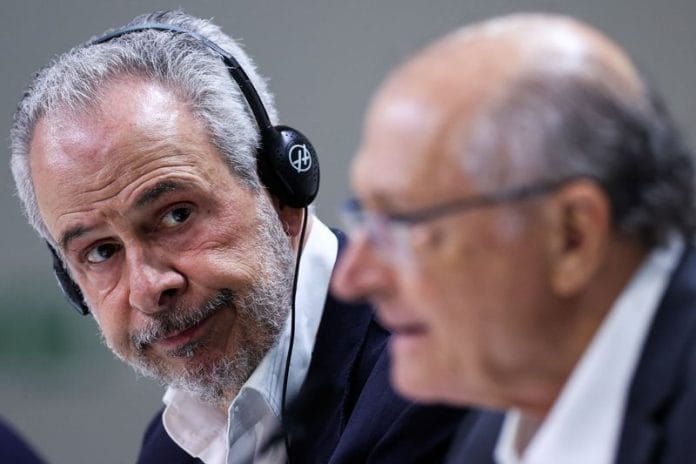By Kate Abnett, Lisandra Paraguassu and Sudarshan Varadhan
BELEM, Brazil (Reuters) -Brazil is hoping to land an early agreement on some of the most contentious issues at the COP30 climate summit after unveiling a bold negotiation strategy that had delegates working into the early hours of Tuesday morning.
The two-week summit in the Amazon city of Belem has brought together governments from across the world to strengthen the complex U.N. framework underpinning global action to halt rising greenhouse gas emissions and cope with the damage caused by warming temperatures.
Host nation Brazil wants a deal agreed in two stages: one package on Wednesday, including subjects like phasing out fossil fuels and delivering promised climate finance that were a week ago deemed too thorny to even include on the formal agenda, and another wrapping up any outstanding issues by Friday.
“I think it’s a daring move. It could work, although it’s also a risk because why would parties move if they know there still is time,” said one European negotiator.
At the outset of COP30, it was unclear whether there would be an attempt to negotiate a final agreement for the end of the summit.
On Tuesday, the COP30 presidency, invoking the Brazilian Portuguese concept of “mutirão” – a spirit of collective effort – released a first draft of a possible summit deal titled “Global Mutirão: uniting humanity in a global mobilization against climate change”.
GUTERRES RETURNS TO MEET LULA
U.N. Secretary-General Antonio Guterres returned to Belem on Tuesday and will meet Brazilian President Luiz Inácio Lula da Silva on Wednesday.
Lula said the meeting was designed to “strengthen climate governance and multilateralism.”
The toughest topics include pinning down how rich countries will provide finance to poorer countries to switch to clean energy, and what must be done about a gap between promised emissions cuts and those needed to stop temperatures rising.
Confounding expectations set by recent COP summits – all of which have run way past their scheduled end – Brazil’s COP30 president Andre Correa do Lago said late on Monday he had the support of attendees to push hard for an early outcome.
Talks ran past midnight and were scheduled to run late again on Tuesday.
Some nations, including Brazil, want a roadmap to help countries implement an agreement reached at COP28 in 2023 to phase out the use of fossil fuels, though the draft deal only listed this as an optional inclusion.
“The current reference in the text is weak and it’s presented as an option. It must be strengthened and it must be adopted,” said Tina Stege, Climate Envoy for the Marshall Islands, at a press conference alongside representatives from more than a dozen supportive countries.
DIFFERENCES REMAIN UNBRIDGED
Two negotiators and two third-party observers, who are permitted to sit in on the talks, separately described to Reuters a broad range of disagreements that were yet to be resolved.
Issues like the provision of finance have long pitted developed countries, many of which are juggling tight public finances and competing domestic priorities including security, against the most vulnerable nations, like small island states under existential threat from rising seas.
Some of these differences were captured in the draft text published by the COP30 presidency, which presented a wide range of options for the final wording on the key issues – including no agreed text at all in some areas.
That left no clear picture of where a final deal would land.
“The proposed texts released today show some progress but largely miss the mark for the level of ambition that this COP requires,” said Rachel Cleetus, senior policy director for the Climate and Energy program at the Union of Concerned Scientists.
(Reporting by Lisandra Paraguassu, Kate Abnett and Sudarshan Varadhan, writing by William James; Editing by Katy Daigle, Aidan Lewis and Nia Williams)
Disclaimer: This report is auto generated from the Reuters news service. ThePrint holds no responsibility for its content.






